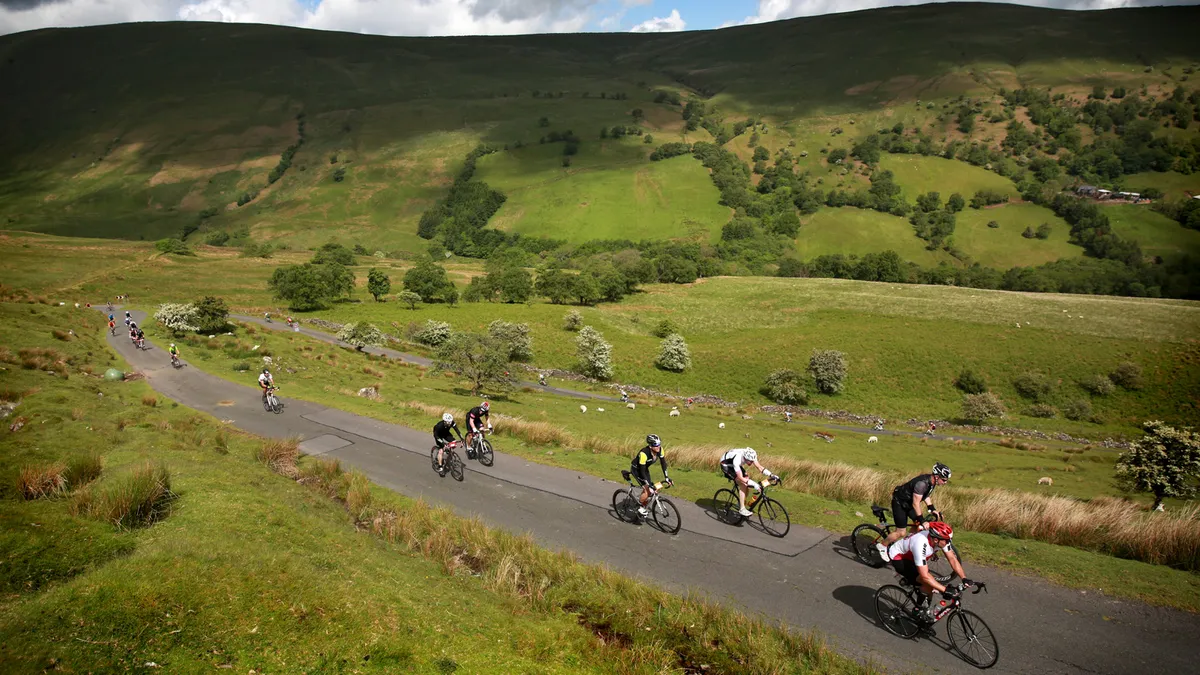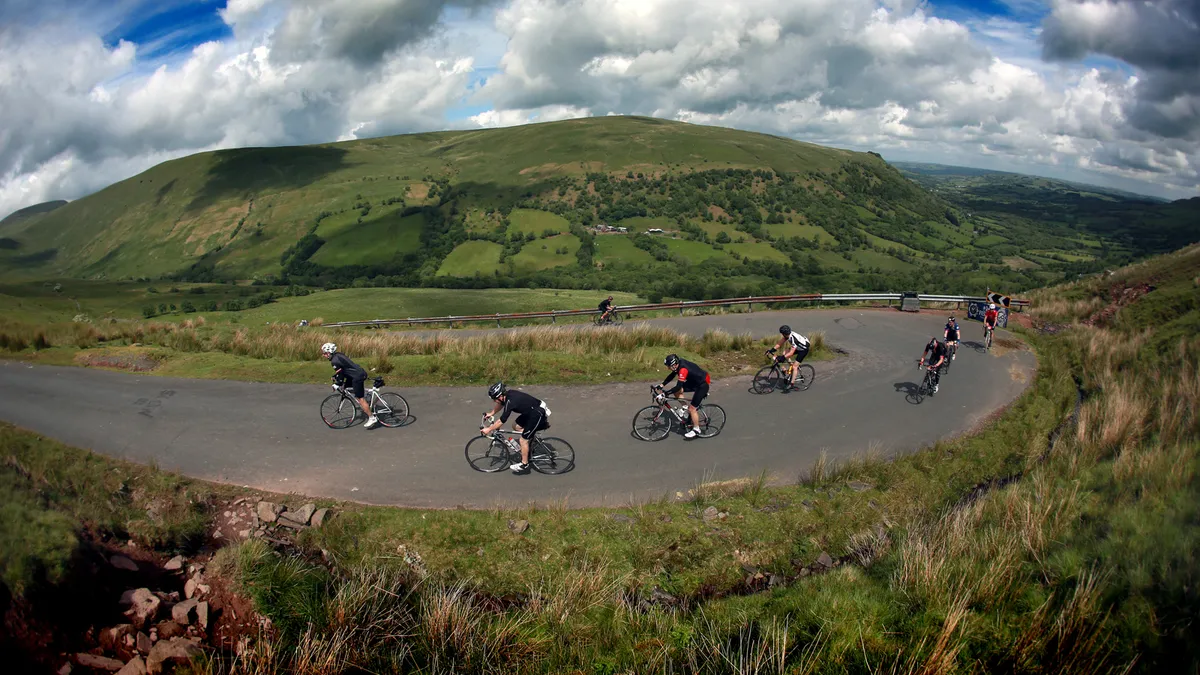Next year’s Dragon Tour is one of an ever-increasing number of multi-day sportive events. Riding day after day goes far beyond the challenge of a regular gran fondo, so we’ve turned to someone who knows all there is to know about the rigours of performing day in and out – 1987 Tour de France, Giro d’Italia and World Championships winner, Stephen Roche.
Thanks to amazing routes that make the best use of South Wales’ mountainous cycling scenery to give a Tour de France-style feel to the climbs, the Dragon Ride is worthy of the high regard in which it’s held, so the prospect of the event being extended to three days is sure to tempt previous finishers and new combatants alike to take on the challenge of the Dragon Tour. If you're thinking of doing so, Stephen Roche's advice is sure to come in useful.
Training for a multi-day sportive
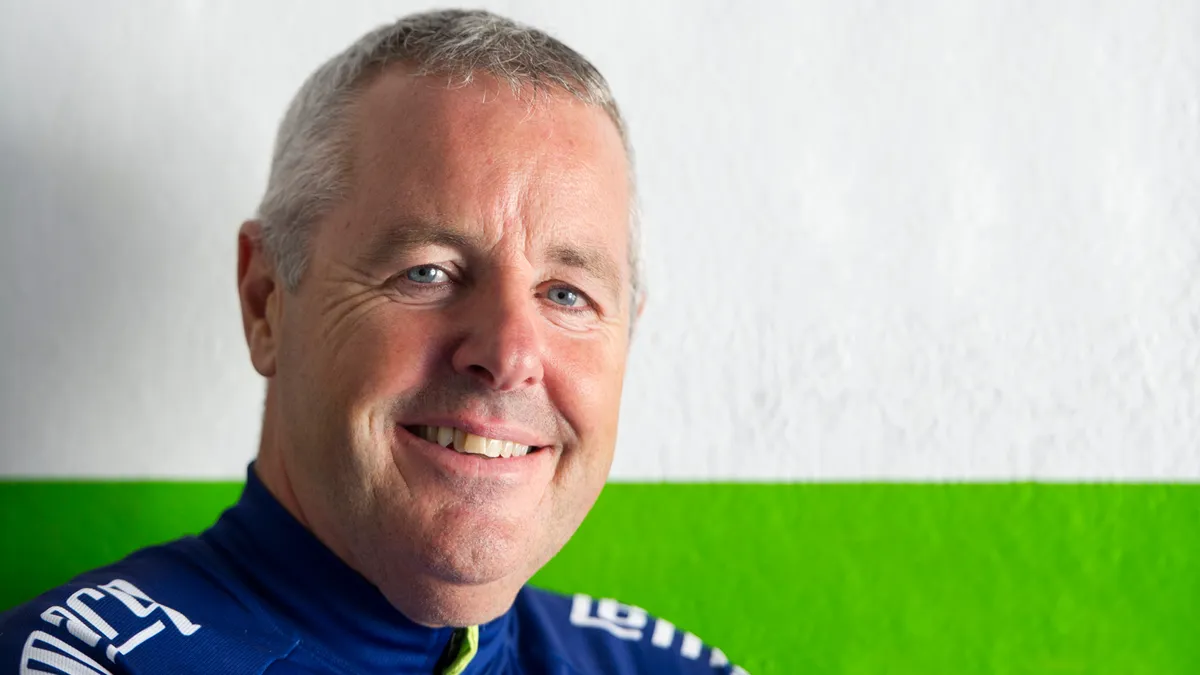
Roche knows a thing or two about getting the best out of yourself day after day
When you’re tackling a multi-day sportive, getting consistent back-to-back training is the best way to prepare your body for what’s to come, but that means making time to do it.
As Roche says, “Not everybody can train twice or three times a week. You get your guy who's working in the office who can only sometimes ride to work or get on the bike once a week. He cannot go out and expect to be knocking it out there with the top guys, so he’d have to be happy with whatever time he'll do. [People] don't have the experience of the fatigue that's accumulated over a two-, three-or four-day event, so it's very good to go away for a long weekend, just to experience the multi-day effect and the sensation of it, because we all feel stronger than we actually are.
“You go out there on day one, feel strong and say, 'Well I'm on great form' and on the next day, you say, ‘I feel a bit tired, but I'm ok’ and you dig in again, but on the third day you just hit the wall.
“There's nothing better than a training camp to prepare for a multi-day event. Everybody does it, whether they are professionals, amateurs or sportive riders. Now there're so many cycling holidays and training camps available on the market that everyone can basically find whatever they're looking for, for whatever reason they want to do it.
“I organise my own camps and you get people out there the first day and give them a brief as to what they'll be doing for the full week. You always hear people say 'I’ve come to a training camp and it's only 80km, 90km a day!' and I say, ‘Don't worry that you're only doing 90km, don't go on and do extra miles because it always gets harder as you go along. You don't feel it and all of a sudden it hits you'. So I can guarantee, nobody asks for a longer ride at the end of the week because they're all on their knees because of the multi-day effect.
“So getting experience – either at home or going away to be able to cycle for three or four days on a cycling weekend or a cycling holiday would be the best preparation for a multi stage sportive. You've got to feel it to understand it.”
How to ride a multi-day sportive
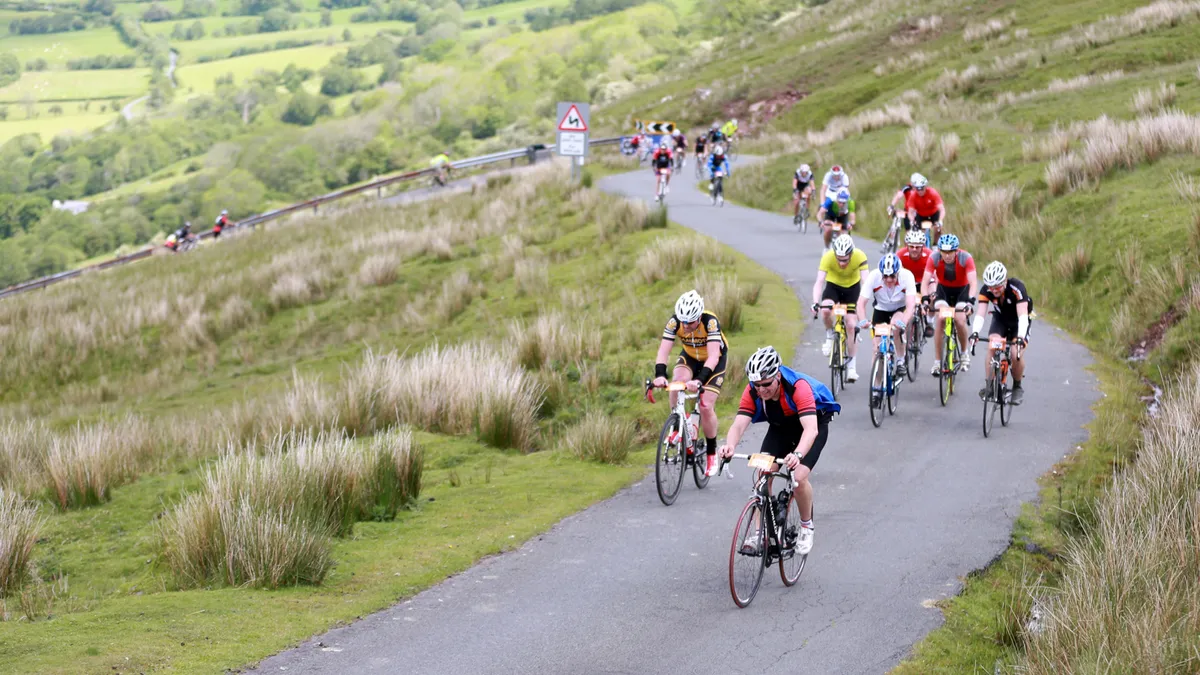
Climbs that would be easily conquered on the first day of a sportive can seem monstrous by day three
Getting it right over three days is a much harder balancing act than during a one-day sportive. Seeing a multi-day sportive as a whole is key to success.
“The most important thing is to look at the finish line as being after the third day, not after the first," says Roche. “Even though the first day is timed and there is a finish line, keep something in the tank for the third day. Not many people have the opportunity to get themselves used to riding for three days in preparation for the event.
“On the first day you hit it. You're going to be doing it on full reserves and have a relatively good day. If you go too deep into the red and you overestimate yourself, you'll get by on whatever reserves are left on the second day, but there's still one day to go. So the idea is to see it as a three-day event, not three one-day events, because otherwise the third day could be extremely long.”
Succesfully managing your effort over the three days begins before the race by looking at what you’ve done and what you could be capable of in the event. Roche says: “I think that the most important thing is not to lie to yourself. You can only get out what you put in, so if you're doing two training rides a week plus the weekend and you're capable of riding an average speed of 28 to 29km an hour for four to five hours, don't try to go 33km an hour for four hours because you're going to pay for it.
“Especially with the Dragon Ride being very, very undulating with a fair bit of climbing in it, I'd be very careful to not get drawn into the wrong group starting off. Try to find the group for you rather than you trying to adapt to a group that may be too fast, because if you haven’t the ability to do it, you'll fool yourself for a couple of hours, but you’ll pay for it. So don't overestimate yourself; analyse what you've done and you should know where you should be.”
Nutrition for multi-day sportives
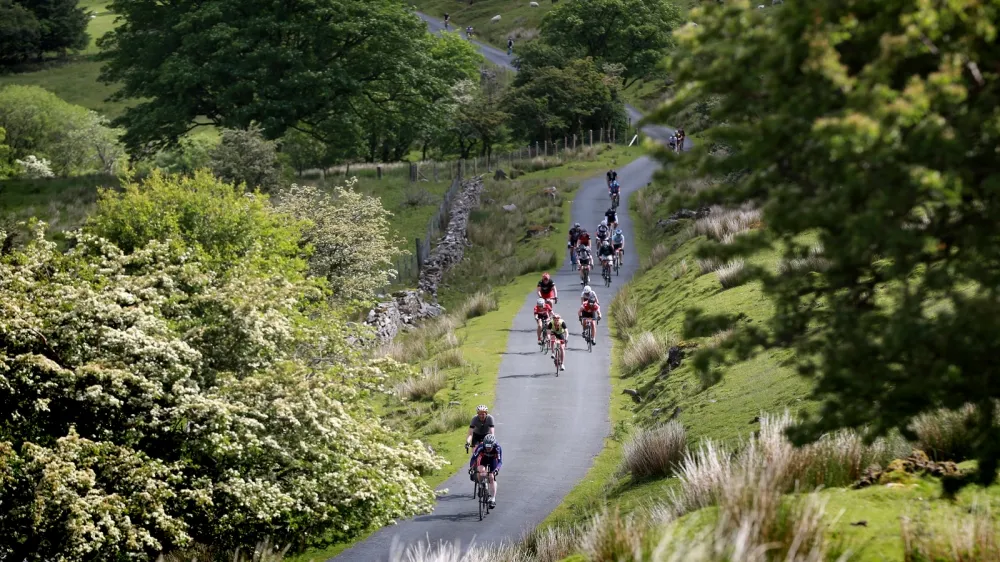
Remembering to refuel in lulls between climbs – and stopping at aid stations – is key to performance
Whether you're an advocate of sports nutrition or 'real food' on the bike, you’re not going to get anywhere in a three-day event without taking on enough calories as you ride.
“It’s very important for a couple of days leading up to the race to make sure you eat a well-balanced diet. Don't be afraid to bring along some energy bars and gels and of course, drink plenty. I know these events, especially the Dragon Ride, always have good feeding stations that are well equipped. Don't be afraid to stop to take on board food and drink because while you might lose a minute or two, but that one or two, it will help you towards the end.
“Don't forget it's a three-day event. If you burn up all your fuel on day one, you go into your reserves on day two and definitely on day three. We all know in the Tour de France, the last week, the third week, is the survival of the strongest and on a three-day sportive, it's on the last day that only the strongest survive. So it's what you do on the first day that'll help you get through the third day – be very careful not to overestimate yourself or to underestimate the challenge.”
Recovery between stages
Aside from the cumulative mileage and keeping energy levels up, one of the toughest parts of riding over multiple days is optimising recovery between each stage.
“The most important thing is the recuperation, so when you've finished the event, you go back to your room and have a shower, and, if you can, a massage," says Roche. “Eat good recovery food, whether it be recovery drinks or whatever you're generally used to having for recuperation, just to tide you over until a good, healthy evening meal. Don’t overload the system [during the meal] because it's not like overloading yourself with food will get you further the next day. The more food you eat over the limit, the more energy you’re going to use to burn that food up.
“Then get an early night because sleep is a very, very important factor for recovery – as important as your diet. Once again, before the start next morning, a good breakfast at least two and half hours before, then it's down to the start line and ‘here we go again'.”
Stephen Roche is an ambassador for the Dragon Tour. Entries for the Wiggle Dragon Ride are available now as well as information on Stephen’s Dragon training camp in Majorca
